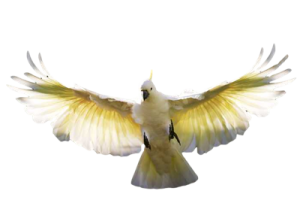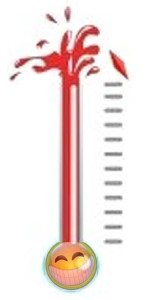
I love running in hot weather, but I have to admit, the last couple of days here in Sydney have taken me somewhat by surprise. If you’re not used to running in hot weather, it can certainly take a lot out of you. One session in the heat the other day was particularly tough – I was trying to maintain a pace based on a cooler weather time trial!! I just didn’t realise how ill prepared my body was for the heat.
Spring time in Sydney can pose a few problems for adapting to hot weather. It’s not unusual to have 10-15 degree (C) fluctuations in temperatures from one day to the next. The temperature for the Sydney Marathon, run in September, has ranged from 20-33 degrees in the last few years. And the problem with getting 30+ degree days in spring, is that we haven’t had time to acclimatise ourselves to the hot weather.
Why It’s Harder to Run in Hot Weather
Our normal core temperature is around 37 degrees. This varies slightly between individuals, with the time of day, and the stage of the menstrual cycle. Your core temperature also increases when you are pregnant (you have that living internal heater inside you!).
Once the body’s core temperature reaches about 38.9 degrees C, your performance, both in training and in racing, will begin to decline quite rapidly. The central govenor theory, explains why this happens.
Briefly, once your core temperature reaches 38.9 C, your body can’t cool itself properly. Blood starts to be diverted to the skin to help it keep cool, which of course, decreases the amount of blood going to the working muscles – you only have so much blood to go around! Less blood to the muscles means less oxygen to the muscles, which results in a rapid decline in performance. Take your core temperature up another degree or so, and your brain is also triggered to inhibit the recruitment of muscle fibres, to stop you from doing yourself damage, so whilst it feels like you’re working harder, you actually are not working harder. Fewer muscle fibres are actually firing.
If you add humidity into the equation, you’re really going to find it tough. You can read more about running in humidity here.
You Feel the Effects of Heat More as You Get Older
Heat can have a much bigger effect on you once you hit 40. A study of 85 cyclists aged 20-70 showed that the older subjects in the study sweated less than the younger once. The diminished heat loss through sweat was greater in the older age groups, leveling out at the 40 -44 years age group. The researchers found that
“aging may have a larger influence on whole-body heat loss capacity than the fitness level or specific physical characteristics of the individual.”
Yipee!!!
The research found the difference between the age groups become more pronounced, the longer the exercise bout.
Acclimatising to the Heat
5 days of exercising in hot conditions will be enough time to see some dramatic improvements in your body’s main cooling mechanism – sweating. The acclimatisation continues for upwards of two weeks.
If you live in a climate where the temperatures are pretty steady for weeks at a time, then you’re sweet, but if your temperatures fluctuate considerably, and race day is forecast to be a hot one, you can acclimatise by running in more layers of clothing for a few weeks prior to the race, or running inside and turning up the heat. You could also run in the middle of the day when the temperature is hottest, if possible.
Other Strategies
Adjust your training and racing pace
Roughly, for every 5.5 C increase in environmental temperature, you can expect to slow down by about 6-10 seconds per km, depending on your age, and how well your body’s cooling mechanisms work. Take this into account when setting goal race times, and training paces.
For example, if you’re scheduled to run 10*500’s at 5km race pace, and your 5km pace is around 5 mins/km, in cool conditions, your 500m repeats would be done in 2 min 30. If you’re running in 30 degree heat, and you are not used to it, you should be aiming to cover the 500m in 2 min 40 – that allows for you to be slowing down by 20 seconds per km. If you don’t adjust your times at the start, you’re likely not to be able to complete the full session. Everyone reacts to hot conditions differently, and you may find you don’t need to slow down that much, or perhaps more, so use this as a guide, monitor how you feel, and adjust accordingly.
Choose your goal races around the temperature
If you’re keen on a marathon or half marathon, choose a race in a location and/or time of year when it is likely to be cool – around 15-18 degrees is ideal. If you’re a 40+ runner (that being age, not 10km pace), this becomes even more important, as you’re body’s cooling mechanisms become less effective, the longer the race. So if you’re over 40 and want to choose your optimum race, all other things being equal, a 5k or perhaps 10k race in late Autumn or early Winter would be ideal.
Not to say you shouldn’t race in the summer, it’s just that you’re more likely to perform better in the cooler months. Shorter races and off road races where you might find some shade, are both a good choice for summer running.
Pre-cool Before You Exercise
The cooler you are before you start exercising in the heat, the longer it takes for your body to reach a temperature where it will start to slow down. So, if you want to perform as well as you can when you are running in hot weather, it makes sense to cool yourself off before you start.
Strategies such as staying in air conditioning as long as you can, wetting your hair and hat with cool water, and wetting your clothing all help to keep you cooler for longer. Wearing ice vests is another, less readily available strategy. Pre-cooling by eating slushies is also a very effective strategy
Recovery Takes a Battering in Summer
Your attention to recovery is just as important in summer as it is at any time of the year. But, despite the word “summer” invoking visions of lazy days spent in a hammock by the beach, perhaps sipping a gin and tonic, summer is a crazy time in the southern hemisphere. The end of the school year and school concerts add an extra level of organisation to the household, at work everyone insists on setting pre-Christmas deadlines, (though you know there’s little chance of that report being read before the end of January) and Christmas itself can take take stress to a whole new level!

We tend to get less sleep in summer. There’s more happening, more partying, and it can be difficult to get to sleep on some of those stinking hot summer nights. If you’re a runner, you want to get out running early, before it gets too hot, and even if you don’t plan to run in the morning, the cockatoos screeching outside your window will squash any plans for a sleep in! (Thank you very much bird lady who feeds the native birds in the park next door- NOT)
It’s not only lack of sleep that will effect your recovery when you’re running in hot weather. Your body will be working harder to keep itself at the right temperature. You’ll be diverting blood to the skin to keep cool, which means your muscles don’t get quite as much oxygen and nutrient rich blood. This might not have a dramatic effect on your recovery, but it will possibly contribute to an overall feeling of sluggishness.
The Upside

For someone like me, the upside of all this is simply that it’s summer! Some people come alive in summer, and I’m one of them. I love hot nights, I love a 6 am temperature of 25 degrees, I love the buzz of blowflies (though not when they buzz into my mouth), I love the cooling breeze of running at the beach. I love the sweat, I love the extra effort, I even love those bloody cockatoos!
The mental freshness I feel in summer far outweighs the physiological downside, but if you’re not a summer person, here’s a summary of recommendations for coping with running in hot weather.
Recommendations
- If you have a race planned for a day which could be unseasonally hot or you’re race is in a hotter climate, acclimatise your body to the heat by training in an extra layer or two of clothing, or running in the hottest part of the day
- Remember to adjust your paces for the heat, especially if you are in the over 40 category
- Don’t aim for a personal best in the summer months. It’s unlikely to happen
- Pre-cool yourself before you exercise, by staying in air conditioning for as long as possible or wetting hair or clothing. More pre-cooling strategies can be found here
- Give yourself an extra rest day every now and again.
- Run in the coolest part of the day
- Try to run along shady routes, or by the beach where you’ll catch a sea breeze
References:
Larose J, Boulay P, Sigal RJ, Wright HE, Kenny GP (2013) Age-Related Decrements in Heat Dissipation during Physical Activity Occur as Early as the Age of 40. PLoS ONE 8(12): e83148. doi:10.1371/journal.pone.0083148


